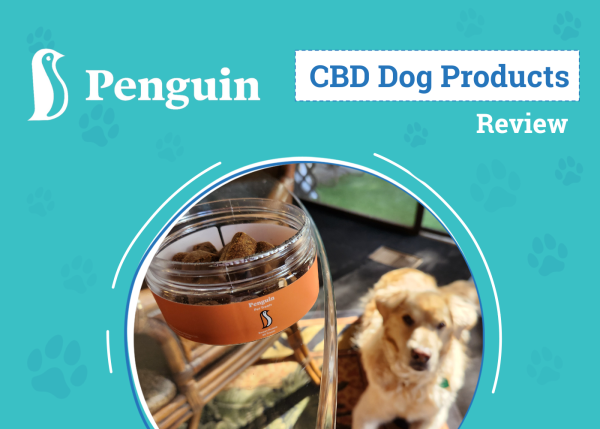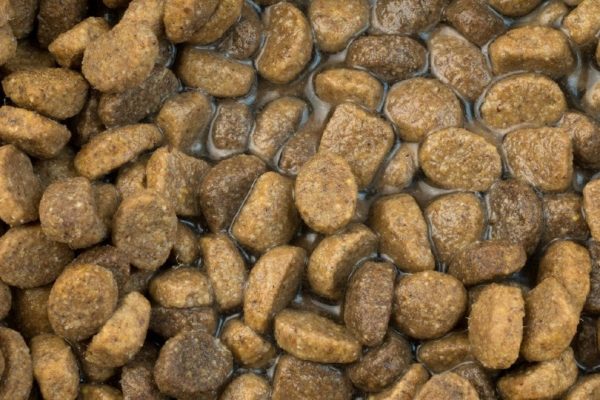In this article
View 2 More +Although croissants don’t contain ingredients that are toxic to dogs, it’s still not recommended for dogs to eat them. So, you don’t have to worry too much if your dog sneaks a bite of a croissant, but this pastry shouldn’t be fed consistently as a treat for your dog.
Croissants don’t add much nutritional value to a dog’s diet, and they also contain a lot of fat and carbohydrates, which can quickly lead to unnecessary weight gain. Fortunately, there are plenty of other baked treats that your dog can enjoy safely. So, it’s worth exploring your options and avoiding feeding your dog croissants.

Can Dogs Eat Croissants?

Dogs can eat a croissant without getting sick, but just because they don’t get sick doesn’t mean it’s a good snack for them. Croissants are high-calorie foods, and one croissant often exceeds 200 calories. So, a piece of a croissant can seem harmless, but consistently feeding your dog pieces of croissants can quickly exceed healthy caloric limits.
Croissants don’t provide any nutritional benefits to dogs. They’re filler foods that contain a lot of carbohydrates and fat from butter. They’re not safe for overweight and obese dogs, those prone to pancreatitis, or diabetic dogs. White flour and sugar are heavily processed carbohydrates and are some of the main ingredients in a plain croissant. Heavily processed carbohydrates have many vitamins and minerals stripped away and can spike blood sugar and insulin levels. Overconsumption can lead to type 2 diabetes.
Croissants are also made with leavened dough, which is toxic to dogs. The raw yeasted dough can continue to rise in a dog’s digestive system and diffuse ethanol into the bloodstream. Rising bread dough can act like bloat and put dogs in extreme danger. Dogs can also experience alcohol toxicosis if they eat large amounts of raw dough and have high levels of ethanol in their system.
So, if your dog ever eats raw dough, it’s important to call your veterinarian and check for signs of an upset stomach, bloat, and alcohol toxicosis. Croissants containing filling are especially unhealthy for dogs since they usually contain even more sugar and fat. Pain au chocolat and pain aux raisin are toxic to dogs because they contain chocolate or raisins, which are poisonous to dogs.
If you need to speak with a vet but can't get to one, head over to PangoVet. It's our online service where you can talk to a vet online and get the advice you need for your pet — all at an affordable price!
What to Do If Your Dog Eats a Croissant
If your dog eats raw croissant or partially baked dough, contact your veterinarian immediately.
Be on the lookout for signs of upset stomach or alcohol toxicosis:
- Weakness
- Drunken gait
- Stumbling or difficulty walking
- Seizures
- Coma
- Diarrhea
- Vomiting
Your dog may also exhibit bloat-like signs due to the dough expanding in their stomach:
- Distended or swollen abdomen
- Pain or tender abdomen
- Panting
- Rapid breathing
- Pacing and restlessness
- Attempts to vomit
- Inability to stand
If your dog eats a bite of a fully baked croissant, check for signs of an upset stomach. You can also play it safe and contact your veterinarian for further instructions.
Healthy Alternatives to Croissants

Dogs are omnivores, and as long as they don’t have a wheat allergy, they can enjoy many baked dog biscuits. You can also find several wheat-free options if your dog has trouble processing gluten.
There are many homemade dog treat recipes that you can make for your dog. They omit dairy and substitute it with non-dairy milk, like almond milk and coconut. They also use whole wheat flour or oat flour, which is more nutritious than white flour. Many recipes incorporate fruit and vegetables in their wet base, like mashed bananas, pureed pumpkin, grated carrots, and zucchini.

Final Thoughts
Croissants are unhealthy for dogs, and raw croissant dough is dangerous for them to eat. So, it’s helpful to have baked dog biscuits in your home so that you can give your dog a safe treat while you eat a croissant.
Just because a dog shouldn’t eat a croissant doesn’t mean they can’t enjoy fresh baked goods. You can spend a weekend experimenting with different dog-friendly biscuit recipes to see which ones are your dog’s favorites. Your dog will be on board with trying new snacks, and recipe testing might be a new hobby you can enjoy together.
See Also:
- Can Dogs Eat Jolly Ranchers? Vet Approved Facts & FAQ
- Can Dogs Eat Brownies? Vet-Approved Facts, Risks & FAQ
- Can Dogs Eat Prosciutto? Is it Safe?
- Can Dogs Eat Mochi? Vet Reviewed Facts & FAQ
- Can Dogs Eat Cheese? Vet-Reviewed Nutrition Facts & Safety Guide


















